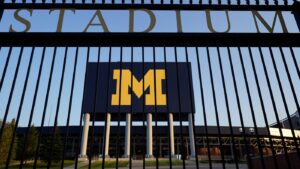
The legacy of redlining continues to shape housing segregation in Milwaukee, according to a recent discussion by Professor **Rafael Pereira** from the University of Wisconsin-Milwaukee (UWM). The practice, which began in the **1930s**, systematically denied loans and insurance to residents in predominantly Black neighborhoods, creating long-lasting disparities in access to housing and resources.
In his analysis, Professor Pereira highlighted that Milwaukee remains one of the most segregated cities in the United States. He pointed out that over the last century, redlining has contributed to significant economic and social inequalities, with current estimates indicating that neighborhoods affected by these discriminatory practices suffer from a lack of investment. This disinvestment has led to a staggering economic impact, with an estimated **$7 billion** in lost wealth since the policy’s inception.
Understanding Redlining’s Historical Context
Redlining involved the practice of marking neighborhoods in red ink on maps to indicate areas deemed too risky for lending. This practice not only restricted access to mortgages but also influenced the allocation of public services and infrastructure development. Professor Pereira noted that this historical context is essential for understanding the current state of housing in Milwaukee.
The professor explained that while redlining officially ended decades ago, its effects linger. Communities that were once vibrant have seen rising poverty rates and declining property values. According to recent data, neighborhoods that experienced redlining are now home to **50%** of the city’s Black population, highlighting the enduring impact of these policies.
The Path Forward
Addressing the consequences of redlining requires concerted efforts from policymakers, community leaders, and residents. Professor Pereira emphasized the need for comprehensive housing policies that promote equity and inclusion. He suggested initiatives that focus on affordable housing development, investment in infrastructure, and community engagement as critical steps towards rectifying the damage caused by past discrimination.
Furthermore, Pereira called on local governments to implement policies that provide resources for homeownership in historically marginalized communities. He believes that these efforts could significantly contribute to reducing the wealth gap that has persisted due to the discriminatory practices of the past.
Understanding the ongoing repercussions of redlining is crucial for fostering a more equitable society in Milwaukee. As the city grapples with the legacy of these policies, the insights shared by Professor **Rafael Pereira** serve as a reminder of the work still needed to create a more inclusive future for all residents.






